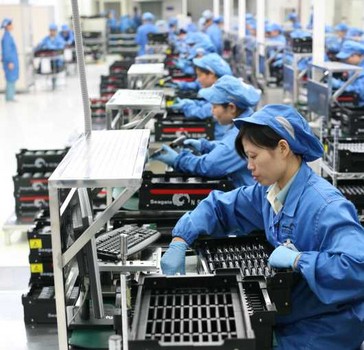Manufacturing in China Blog
Here you can leave comments and start discussions about manufacturing parts of complete products in China.
China sourcing: In depth look
- Hits: 1613
- 0 Comments
- Subscribe to updates
- Bookmark
 Over the last years “sourcing in China” became part of our life. I mean, who will argue that it is a bad idea when world most valuable company Apple trust manufacturing of its highly technological and world best selling Iphone, that represents large chunk of company revenue – to the Chinese company Foxcon. People on the street seem to be satisfied to, many praise quality and finish of the beautiful new phone.
Over the last years “sourcing in China” became part of our life. I mean, who will argue that it is a bad idea when world most valuable company Apple trust manufacturing of its highly technological and world best selling Iphone, that represents large chunk of company revenue – to the Chinese company Foxcon. People on the street seem to be satisfied to, many praise quality and finish of the beautiful new phone.
Many manufacturers now chase up factories in China and send them drawings and manufacturing files to quote. It all appear fairly simple: locate the business in China you can trust, send files for a quote, request samples, order product as lower cost and enjoy the benefit.
Here, I like to look in to the details of what is actually happening on the Ground in China. I will focus mainly on four areas: Culture, Language, Economy and Government Regulations. All in the light of outsourcing challenges.
Culture. Disregarded by many it is most influential driving force in your relationship with China. It is not the way they speak, dress, have fun and eat. It is a way of thinking. Way they see the world, based on thousand years of cultural history. Do you know that there are 56 ethnic groups in China that are officially recognized? Each and every one have it’s own distinct cultural heritage. It’s own Goods, jokes, language or dialect. Now you will ask why it is important? It is, as behavior of individual you will be working with will be guided by his/her moral standards and ethnic background. This will impact on your communication quality a great deal. For example, generally speaking if the problem arises, westerners educated to share the issue with clients in order to work together towards a better solution. Chinese will do opposite, they hide the problem. They will go thru pain and effort in order to resolve it the way they think it is the best, based on limited knowledge of your product/business. It is a frustrating process for them and painful for you, resulting in delays and quality variations.
Language. Here I manly like to focus on Chinese using English for communication with customers abroad. It is important to know that English in China is a ‘dead’ language. 99.9% of Chinese never been overseas and study English from Chinese. They think Chinese and they translate Chinese in to English when they speak. The result is poor communication, as two languages structurally and culturally very different. You are lucky if you have known the individual for some time, then you can understand the fine meaning based on past experience. You can also tell if person on the other side is happy or frustrated with subject at hand. If your sentence in the email you have sent is longer than 5-6 words and more complex than simple command presented in “buletpoint” form, do you really think they get the sound meaning of what you are trying to tell?
Economy. Well, think of China as west during booming times. Workers are lured by employees offering higher wages next door, factories been build everywhere, new generation of young people buying Iphones and fashion clothing all on credit cards. All this adds to the turbulent mix of the fast economic growth. Your contact person in the company can change every 6 months, as a matter of fact 50% of factory staff members can change over 12 months as less than half of workers will come back to same factories after spending Festive season in hometowns. Question remains open, if you spend 3 months explaining a person specifics of your project and you get a new account manager in 6 months, where does it leave you?
Government regulations. Here I like to make a special note that it requires a license for a company in China to export. License allows company to sell only narrow range of goods/services. Only a minority of factories will go in to the trouble of getting it, limiting them to local market only. Trading companies on the other hand, have licenses allowing them to trade wide range of goods/services and they specialize in customs, freight and banking with overseas. You would want to work direct with factories for pricing, but with trading company for ability to communicate, solve problems and been able to deliver goods to you.
Summary. There are few ways you can effectively work with China. Unless you are big entity that can do an acquisition of the Chinese business and relocate part of its western management team to full time oversee the operation in China, your options are as follows:
- Locate facility that deliver desired service and can export. Get to know them well, travel monthly to see them, make sure they are financially stable and reliable source. Become part of their business/team, stay close and learn the culture and basics of the language.
- Do a Joint Venture. Your professionalism in doing business in China well above the basics covered here. You will not be reading it.
- Contact some type of sourcing company. Find a reliable company, that is capable of coming over to meet you, speak fluent English and happy to meet you in China. Once your business volumes become high, you can look at other alternatives.
Comments